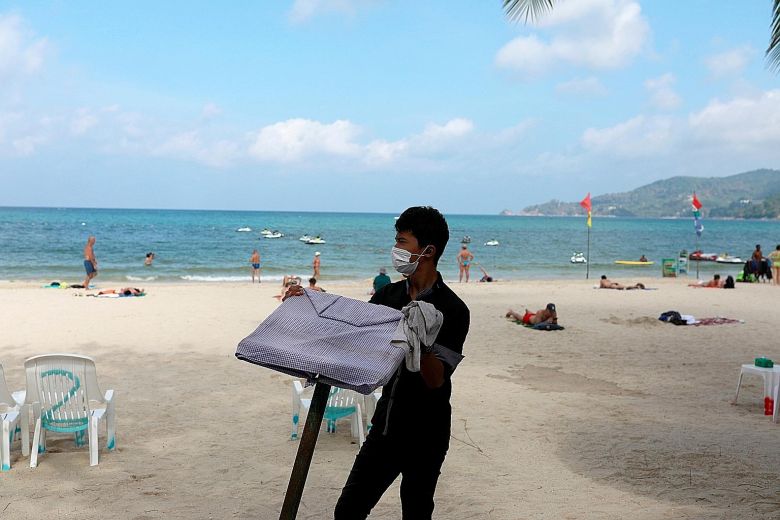Thailand is finalising a plan that would make it possible for retired, sun-seeking Europeans to spend the upcoming winter months in the country in an effort to save its ailing tourism industry.
Although the Asian nation’s borders have been closed to most foreigners since late March to fight the coronavirus pandemic, the government is now planning to grant visas to foreigners who want to stay in Thailand for up to nine months, said Mr Boon Vanasin, chairman of Thonburi Healthcare Group, the nation’s third largest private hospital firm, which runs hospitals and retirement homes.
These long-term visitors will begin their stay with a mandatory 14-day quarantine and several virus tests in the tourist hotspot of Phuket.
After three weeks on the island and negative test results, they would be free to travel to other Thai regions, according to Mr Boon, who said he has direct knowledge of the government’s plan and expects the arrivals to begin before winter.
While the government has approved the plan in principle, it is still finalising measures to reduce the risk of virus infections, said government spokesman Traisulee Traisoranakul.
The opening-up is a lifeline for Thailand’s devastated tourism and hospitality industry, which is struggling to survive after five months without foreign visitors.
Although Thailand has been one of the world’s most successful countries in curbing Covid-19 – it has not had a locally transmitted case for three months – its tourism-reliant economy has been one of the worst-hit globally, projected to shrink by a record of 8.5 per cent this year.
Thailand’s new plan will make it possible for millions of seniors from European countries like Germany and Sweden, who usually spend their winter months in warmer Mediterranean countries, to consider the Asian nation instead as it is safe from infection risk, said Mr Boon.
He said his company has fielded queries from European retirement communities that could amount to 50,000 seniors making the journey to Thailand for the coming winter.
He plans to partner hotels to provide quarantine facilities and long-term accommodation for senior citizens and other long-stay visitors, who could arrive via chartered flights before winter begins.
Thai Airways International said it would operate at least two such flights a month starting in late November to connect Phuket with countries such as Denmark, Germany and the United Kingdom. “Many seniors don’t want to spend their time in a cold harsh winter. They want tropical weather,” said Mr Boon.
Around 90 per cent of Thonburi’s customers before the pandemic were international.
But it is unclear if the government intends to let in so many foreigners. On Thursday, Thailand’s deputy army chief said the country was mulling plans to reopen to long-stay visitors and foreigners who own local property, but this would amount to only “hundreds” of people.
The economy is in desperate need of a boost.
Before the pandemic, European tourists would vacation in Phuket and the surrounding areas for between two weeks and two months, said Mr Bhummikitti Ruktaengam, president of the Phuket Tourist Association.
More than 6.7 million Europeans visited Thailand last year and contributed 461 billion baht (S$20.1 billion) to the Thai economy, according to government data.
They made up about 17 per cent of total foreign visitors and 24 per cent of total foreign spending.
BLOOMBERG




